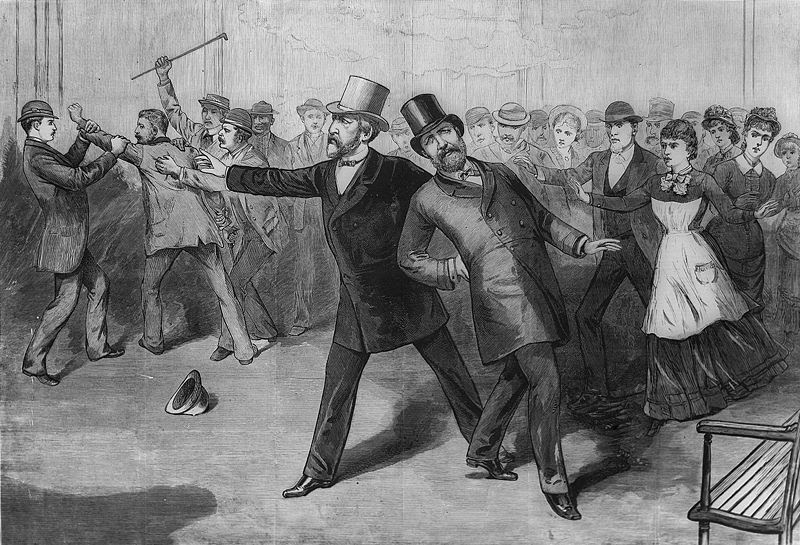The question of how many presidents of the US were assassinated is a significant one that delves into the darker chapters of American history. Over the years, the United States has seen a total of four presidents assassinated while in office. This article explores the circumstances surrounding each assassination, the historical context, and the impact these events had on the nation. Understanding the details of these tragic events not only highlights the vulnerabilities faced by those in power but also reflects the societal tensions that existed at the time.
In this comprehensive exploration, we will look at each of the four presidents—Abraham Lincoln, James A. Garfield, William McKinley, and John F. Kennedy—who fell victim to assassination. We will also discuss the implications of these events on American politics and society. This investigation aims to provide a thorough understanding of the motivations behind these tragic acts and how they shaped the course of history.
By the end of this article, readers will have a clearer picture of how many presidents of the US were assassinated and the legacy left behind by these harrowing incidents. We will aim to provide a balanced perspective, backed by historical data and expert insights, ensuring a thorough examination of this critical topic.
Table of Contents
- Presidents Assassinated in the US
- Abraham Lincoln: The First Assassinated President
- James A. Garfield: A Tragic Short Reign
- William McKinley: The Progressive Era's Loss
- John F. Kennedy: A Nation in Shock
- The Impact of Assassinations on American Society
- The Legacy of Assassinated Presidents
- Conclusion
Presidents Assassinated in the US
Throughout American history, four presidents have been assassinated while in office. These are:
- Abraham Lincoln (16th President)
- James A. Garfield (20th President)
- William McKinley (25th President)
- John F. Kennedy (35th President)
Each of these events was marked by their own unique circumstances and motives, reflecting the political and social climates of their respective eras.
Abraham Lincoln: The First Assassinated President
Abraham Lincoln, the 16th President of the United States, is perhaps one of the most well-known figures in American history. His assassination on April 14, 1865, by John Wilkes Booth, a Confederate sympathizer, marked a turning point in American politics.
Personal Data of Abraham Lincoln
| Full Name | Abraham Lincoln |
|---|---|
| Birth Date | February 12, 1809 |
| Assassination Date | April 15, 1865 |
| Presidency | 1861-1865 |
Lincoln's assassination came just days after the conclusion of the Civil War, highlighting the tensions that still existed in the nation. Booth's actions were driven by a desire to disrupt the Union government and avenge the South's defeat.
James A. Garfield: A Tragic Short Reign
James A. Garfield, the 20th President, served from March 4, 1881, until his assassination on July 2, 1881. He was shot by Charles Guiteau, a disgruntled office seeker.
Personal Data of James A. Garfield
| Full Name | James Abram Garfield |
|---|---|
| Birth Date | November 19, 1831 |
| Assassination Date | September 19, 1881 |
| Presidency | 1881 |
Garfield's presidency was cut short, as he died from infections caused by the bullet wounds. His assassination spurred debates on the need for civil service reform.
William McKinley: The Progressive Era's Loss
William McKinley, the 25th President, was shot on September 6, 1901, by anarchist Leon Czolgosz. He succumbed to his injuries on September 14, 1901.
Personal Data of William McKinley
| Full Name | William McKinley |
|---|---|
| Birth Date | January 29, 1843 |
| Assassination Date | September 14, 1901 |
| Presidency | 1897-1901 |
McKinley's assassination was shocking and marked a significant moment in the Progressive Era, prompting discussions about security measures for public officials.
John F. Kennedy: A Nation in Shock
John F. Kennedy, the 35th President, was assassinated on November 22, 1963, in Dallas, Texas. His death shocked the nation and the world.
Personal Data of John F. Kennedy
| Full Name | John Fitzgerald Kennedy |
|---|---|
| Birth Date | May 29, 1917 |
| Assassination Date | November 22, 1963 |
| Presidency | 1961-1963 |
Lee Harvey Oswald was arrested for the assassination, but many conspiracy theories emerged, reflecting the deep political divides of the era. Kennedy's death had a profound impact on American society, leading to a reevaluation of presidential security and political discourse.
The Impact of Assassinations on American Society
The assassinations of these four presidents left lasting marks on American society. They not only changed the lives of their families but also affected national policies and security measures.
- Increased security for public officials
- Changes in political discourse and public trust
- Legacy of martyrdom for each of the assassinated presidents
The Legacy of Assassinated Presidents
Each of the assassinated presidents left behind a legacy that continues to influence American politics today. Their deaths prompted discussions about governance, civil rights, and the need for reform.
- Lincoln's emphasis on unity and equality
- Garfield's advocacy for civil service reform
- McKinley's role in the Progressive movement
- Kennedy's vision for a new frontier
Conclusion
In summary, four presidents have been assassinated in the history of the United States: Abraham Lincoln, James A. Garfield, William McKinley, and John F. Kennedy. Each event not only ended a presidency but also left a profound impact on the nation. The question of how many presidents of the US were assassinated opens up discussions about the vulnerabilities of leadership and the historical contexts that led to these tragic events.
We encourage readers to reflect on the lessons learned from these moments in history and consider the importance of civic engagement and political discourse. Please leave your thoughts in the comments section below, share this article, or explore more content on our site.
Thank you for reading! We hope to see you back again for more insightful articles.
![]()

